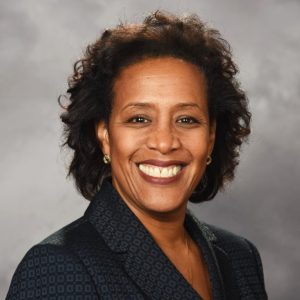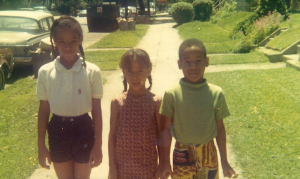
I grew up in West Philadelphia across the street from Clark Park, a six-square block playground and gathering spot. Our family and neighbors would routinely venture to Clark Park to host cook-outs, celebrate birthdays or holidays, or to just enjoy the weather. As a child I can recall gathering in mid-June to recognize what my neighbor Mr. Walt called “Jubilee Day,” more formally known as Juneteenth. Mr. Walt would talk about Jubilee Day with such reverence—sharing with us the importance of a strong and tight community; what full freedom really looks like; the goal to keep moving forward; and how much we need to look out for each other.
As a child, I didn’t make the connection, draw the thread, nor understand the social and political environment that would allow people to remain in bondage for two and half more years after slavery was abolished. Now as an adult, I ponder why still so very few of us understand what really happened to slaves between 1863-1865, former slaves and generations of families in the period between 1863 and the Civil Rights Movement, and why Mr. Walt’s messages are just as relevant then as they are today.

Race relations, progress and equity for historically disenfranchised African Americans and other people of color still continue to challenge us all. Several movements have sprung up across the country trying to erase history. But it is through our history that we learn, grow and can put a foundation in place to close divides, make amends and avoid committing the same mistakes or atrocities.
Last year, CMC embarked on elevating our value of being United in our IDEAs (Inclusion, Diversity, Equity, Access). Among other initiatives, we formed an IDEAs Council to help CMC raise awareness, create opportunities and remove barriers for all employees to become part of a broader community. We hosted several educational series on race relations, panel discussions with leadership, and engaged employees across our territories and at all levels with Privilege Monopoly and the Name Game, each designed to recognize the differences between us as a way of bringing us closer together. We’ve made some strides, and like the rest of the country we still have a long road ahead.
I am pleased to note that effective in 2022, CMC is closing our offices in honor of and in alignment with the Federal Juneteenth holiday. I reflect on my childhood remembrances of Jubilee Day in Clark Park, and of Mr. Walt, and encourage each of you to seize Juneteenth as an opportunity to get educated and get involved:
- Visit any of the 160 Black/African-American museums, sites and cultural centers across the nation
- Participate in local Juneteenth celebrations
- Identify what you can do to elevate and support communities in crisis
- Give your time and energy to a worthy cause
- Support Black businesses in your cities/communities to level the economic playing field
Use your Juneteenth Holiday as a time to celebrate and recognize how far we’ve come and commit to being part of the solution to closing the gap created by slavery that still persists today.
Some background information: 1
Although President Lincoln signed the Emancipation Proclamation ending slavery in the Confederacy in 1863, many southerners sought to evade the executive order by moving thousands of enslaved people to Texas, the most Western of the slaveholding states. However, Union troops pursued them, arriving in Galveston in the summer of 1865 and finally freeing more than 250,000 Black Americans. Enslaved people were then formally emancipated and slavery officially abolished by the 13th Amendment in December 1865.

